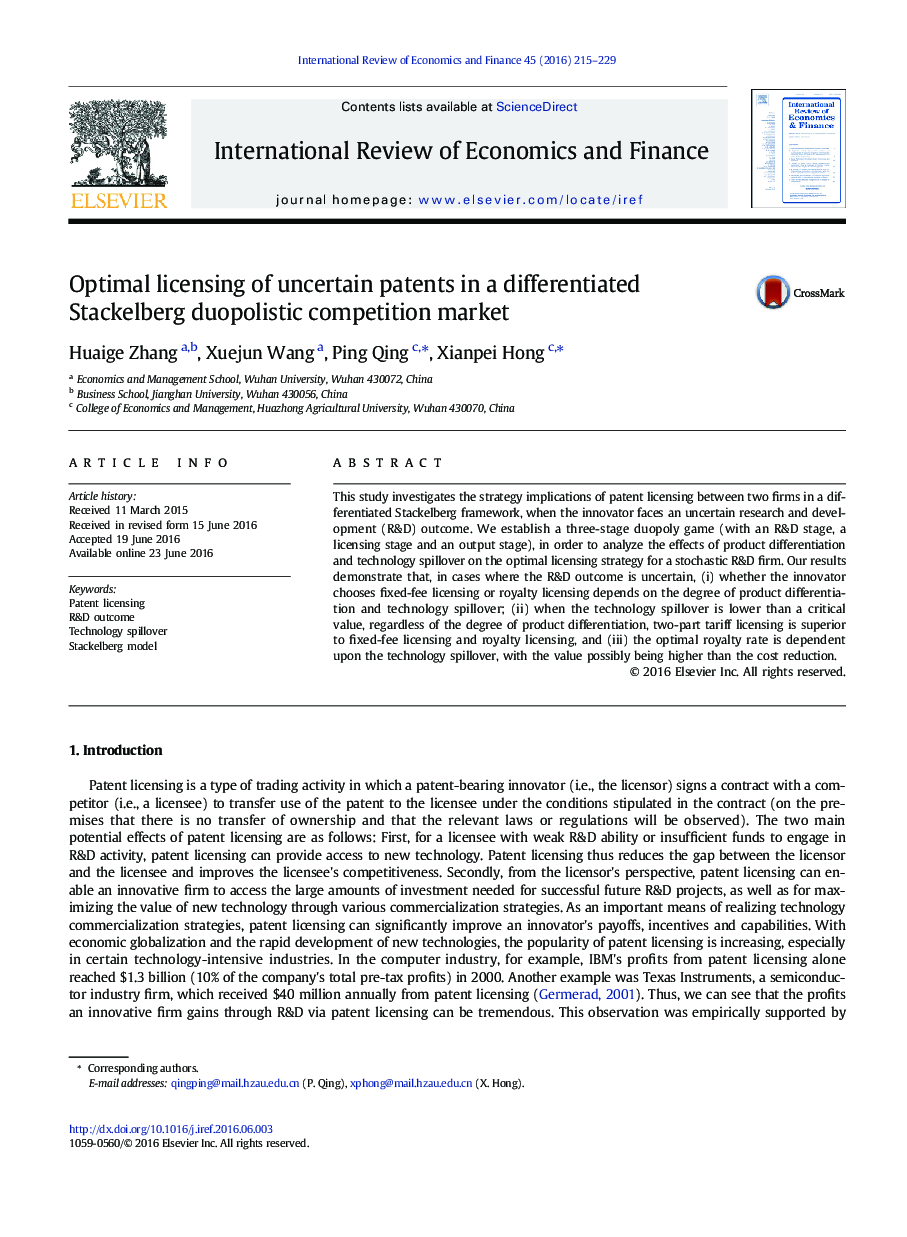| Article ID | Journal | Published Year | Pages | File Type |
|---|---|---|---|---|
| 5083275 | International Review of Economics & Finance | 2016 | 15 Pages |
Abstract
This study investigates the strategy implications of patent licensing between two firms in a differentiated Stackelberg framework, when the innovator faces an uncertain research and development (R&D) outcome. We establish a three-stage duopoly game (with an R&D stage, a licensing stage and an output stage), in order to analyze the effects of product differentiation and technology spillover on the optimal licensing strategy for a stochastic R&D firm. Our results demonstrate that, in cases where the R&D outcome is uncertain, (i) whether the innovator chooses fixed-fee licensing or royalty licensing depends on the degree of product differentiation and technology spillover; (ii) when the technology spillover is lower than a critical value, regardless of the degree of product differentiation, two-part tariff licensing is superior to fixed-fee licensing and royalty licensing, and (iii) the optimal royalty rate is dependent upon the technology spillover, with the value possibly being higher than the cost reduction.
Related Topics
Social Sciences and Humanities
Economics, Econometrics and Finance
Economics and Econometrics
Authors
Huaige Zhang, Xuejun Wang, Ping Qing, Xianpei Hong,
